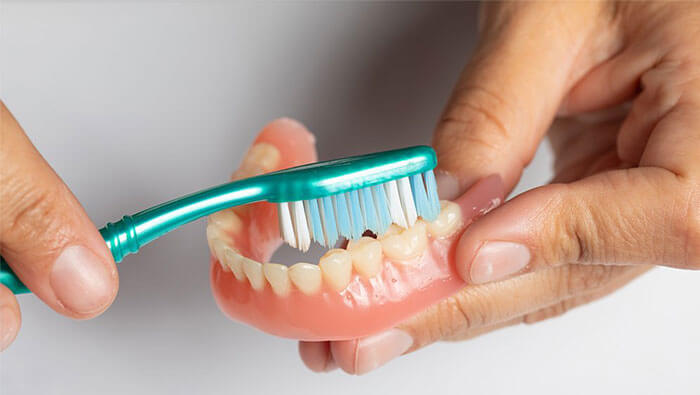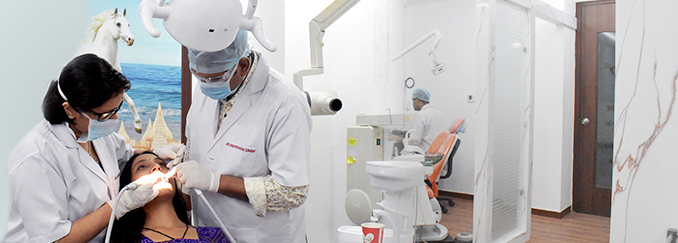Dentures
What are Dentures?
To replace missing or removed original teeth, your dentist will construct Dentures, which are artificial teeth and gums that are shaped accordingly to fit in your mouth. Complete or partial dentures are available, covering the upper or bottom gum line or simply the few missing teeth.
Denture teeth are made of more brittle materials than natural teeth and are more likely to break or chip if dropped or mistreated in any other way.
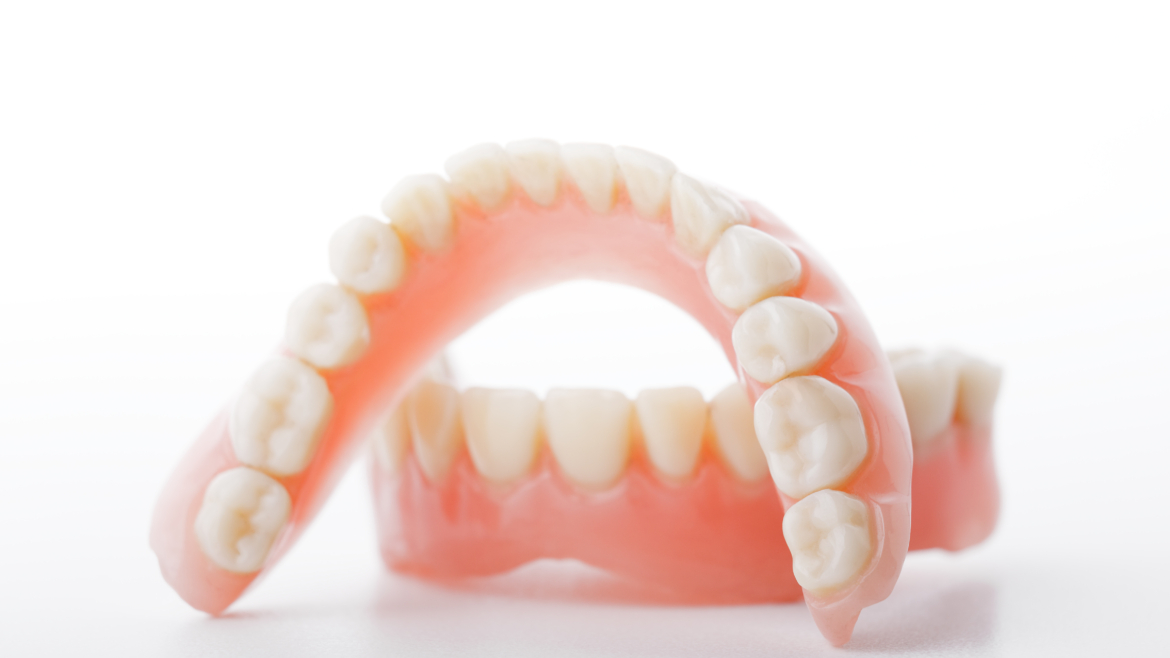
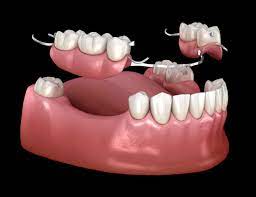
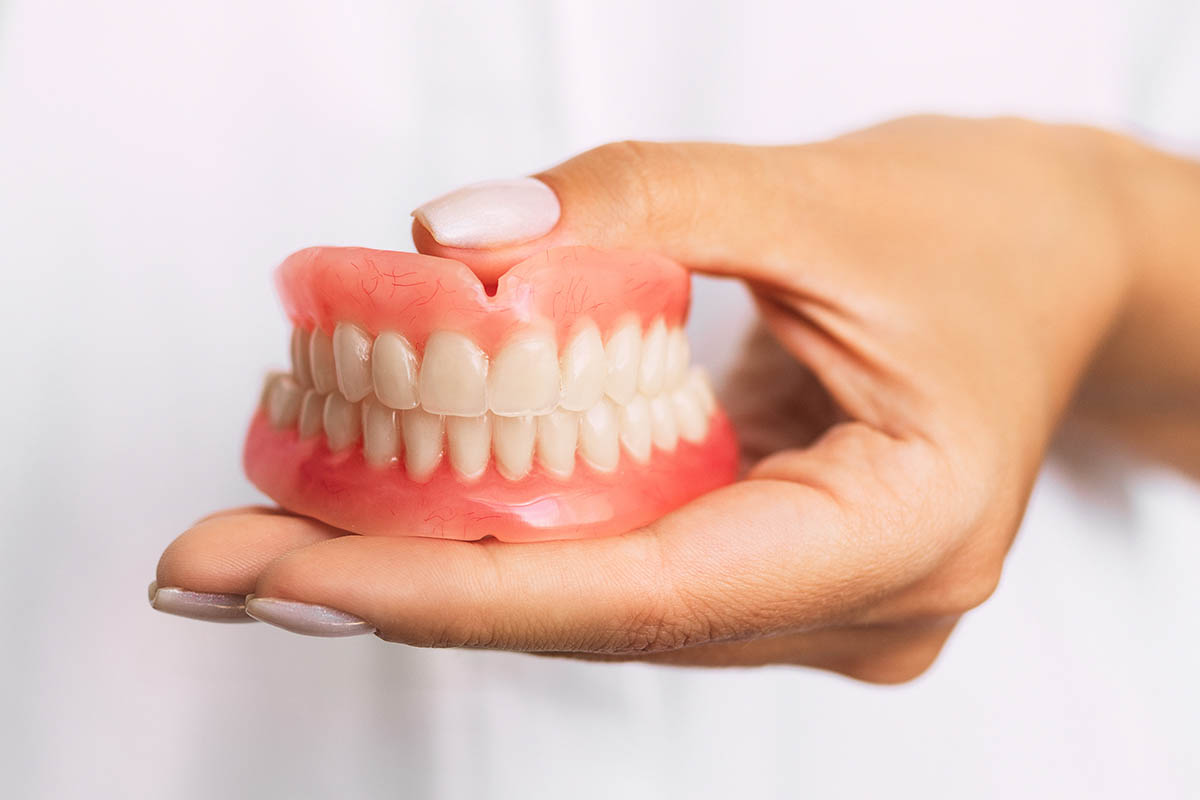
What are the different types of Dentures?
- Partial Dentures:
When one or more teeth are lost, or the adjacent natural teeth are too weak to support dental bridges, partial Dentures are often utilised in place of other tooth replacement options. The Partial Dentures are adapted to the portion of the gum line they rest on and secure with healthy neighbouring teeth to prevent dislocation.
- Full Dentures:
Full Dentures are often called Complete Dentures. They are prosthetics that entirely replace natural teeth of an entire jaw. Complete Dentures can be customised to match your top or bottom gum line.
- Immediate Dentures
Other types of full and partial Dentures exist that are distinct from conventional permanent Dentures, such as Immediate Dentures. Compared to Permanent Dentures, Immediate Dentures can adjust efficiently to account for changes in the mouth as the gums and jaw enlarge during the healing process.
Immediate dentures, as the name suggests, are made immediately after extraction of teeth. They are temporary dentures which are dispensed to the patient to maintain their function of teeth and aesthetics; till a permanent set of dentures are constructed. A permanent set is usually made after 4-6 weeks of extraction to allow complete healing of extraction sockets.
- Implant-supported Dentures/ overdentures
These are dentures secured by Dental Implants, as the name suggests.
Some patients can not retain conventional dentures in their mouth because of lost jaw bone height. In these cases, implant-supported overdentures are ideal.
What are the advantages of Dentures?
Enhance the Appearance of Your Smile.
Missing teeth seriously detract from the beauty of a smile. Dentures help restore confidence in your appearance if you are embarrassed to open your mouth.
They Are Designed for Your Mouth.
The dentist makes custom Dentures specifically for you for the most comfortable fit. Or if your jawbone changes over time, the dentist will create a new set of Dentures.
Simple to Clean Them.
Since Dentures are removable, keeping a strict dental hygiene regimen is easy. To keep your Dentures clean and protect them from the germs and plaque that could cause gum disease, you must use a soft-bristle toothbrush and a special denture cleaner.
They can mitigate other oral health problems.
Missing tooth/teeth can cause several problems. The adjacent opposing teeth tends to migerate in the empty space caused by missing tooth/teeth. This leads to gaps in these teeth and may become loose too. Using Dentures to replace your natural teeth can lower the risk of developing those issues.
How to clean Dentures?
All Dentures, regardless of the type, must be cleaned daily, just like natural teeth. Dentures might be made of artificial teeth, but germs, plaque, and tartar can still accumulate on them and damage neighbouring teeth and gums. Thus they need to be removed and kept in clean water every night before sleeping. Every morning these dentures should be cleaned with a soft tooth brush and a dentifrice (tooth paste).
